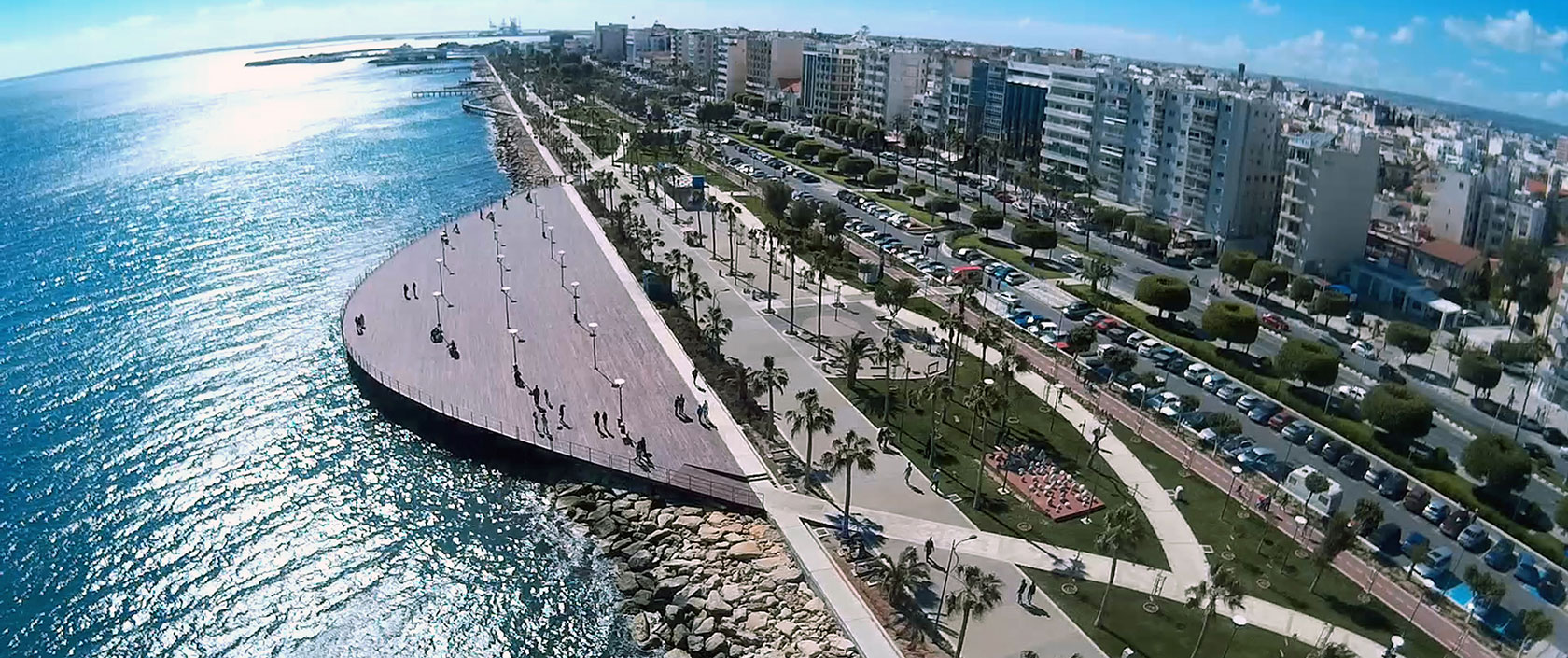Officials defend ‘excellent’ water quality as slicks seen off Limassol coast
Along Limassol’s main seafront, from the marina pier to the Molos promenade and Akti Olympion beach to the Crowne Plaza Hotel, concerns over water pollution have grown in recent weeks with visible oil slicks and discoloured patches prompting complaints from residents and environmental groups.
But authorities maintain that Cyprus’ bathing waters meet the highest EU standards.
Everyone does not agree. “I believe Cyprus does not fully conform to the regulations and decisions of the European Union regarding protection of marine biodiversity,” president of the Akti Olympion winter swimmers’ club Erma Stylianides said.
“We are seeing unacceptable things in our sea,” she added.
“I even made a video showing how the sea under the pedestrian bridge looked, it was like a polluted lake. I sent it to everyone, and they all said, ‘yes, it’s unacceptable.”
A local resident who regularly walks the beach said he had spotted oil slicks even on calm days.
“I not only spoke with beachgoers, but lifeguards, security and police,” David Alexandrou said. “They all seem to know it’s coming from the ships.”
Alexandrou said he was concerned about oversight and public health.
“The more I reflected on the situation, the more concerned I became about two key issues, the apparent lack of oversight and the very real public health risks if this continues unchecked.”
Environmental group Friends of the Earth said it too had received complaints and seen for itself pollution in the Limassol area.
“There have been oil spills and brown water on the beaches, leading to temporary closures and concern among citizens,” Friends of the Earth said.
The group described the pollution as dangerous for health, biodiversity and tourism, citing risks such as skin disease and gastrointestinal illness. It also noted slow official responses to such incidents.
“The responses from competent authorities have been fragmentary, without providing details about the perpetrators or the measures taken.”
Environmental group Akti backed this up. Cyprus “has room to improve transparency and accountability mechanisms concerning maritime pollution,” it said, adding that stronger enforcement would “increase public trust and better protect our marine environment.”
However, the deputy ministry of shipping said Cyprus follows international environmental rules and that all ships anchored off Limassol are subject to inspections. Waste reception services are available offshore and within the port.
“We have not received any recent complaints or reports regarding such violations, either from the public or from the Cyprus ports authority,” the deputy ministry said.
“Nevertheless, when such reports are received, we proceed with a full investigation, which often includes on-site inspections of the vessels involved.”
The environment department too said strict checks are carried out and that seawater is up to standard. Regular tests are carried out between May and October, with extra checks in blue flag areas every 15 days.
“We carry out seawater quality monitoring once or twice a month along the Limassol beachfront,” said senior official Theodoulos Mesimeris, adding that all 123 designated swimming beaches across Cyprus were rated “excellent” in April and May.
No changes in water quality were found during inspections carried out in response to a complaint on Sunday, May 25, he added.
“No deterioration in water quality was found.”
Environmental groups argue that official testing may not reflect real-time pollution and have called for quicker responses and greater public transparency.
“Information on violations is not made public in a timely manner, or at all, while citizens do not have easy access to official data,” Friends of the Earth said.
“Even when complaints are made, the monitoring process is slow and sanctions are often painless for those responsible.
“We need strict sanctions, prompt action and a clear accountability process.”
Akti added that stronger cooperation among state bodies, municipalities and citizens could lead to a more responsive and effective environmental framework, while Friends of the Earth called for each coastal municipality to have a pollution prevention plan.
“Our waters are facing a combination of threats from microplastics to chemical runoff and sewage,” said Mesimeris.
“These pollutants affect marine life and public health. That’s why real-time monitoring and proper wastewater treatment are essential.”
New legislation is expected in 2025 to strengthen enforcement and introduce new obligations for pleasure boats, including onboard sewage systems and stricter waste disposal rules.
“Pleasure boats will be obliged to have holding tanks or sewage treatment systems, which must be emptied only at approved reception facilities,” the deputy shipping ministry said.
An interdepartmental committee has also been formed to coordinate efforts between ministries and municipalities, with digital tools being developed to improve tracking and enforcement.
Stylianides, however, says Cyprus is not moving fast enough to adopt modern solutions, and even said she had been told a monitoring station had started operating, only to later discover that no such station existed.
Also, “when they asked for a vessel to come to Cyprus for one or two months to monitor the sea, no ministry was willing to sponsor it,” she added.
She also claimed that developers near the coast are discharging concrete-laced water into the sea without using the required offshore disposal systems.
“We only see water pouring below us. We can’t find this system anywhere,” she said.
A digital platform showing all water inspection results, complaints and enforcement outcomes has been suggested by environmental groups.
“This would build public trust and act as a deterrent,” Friends of the Earth said.
For now, while officials insist systems are in place, residents say visual signs of pollution remain, and demand for action is growing.






Click here to change your cookie preferences